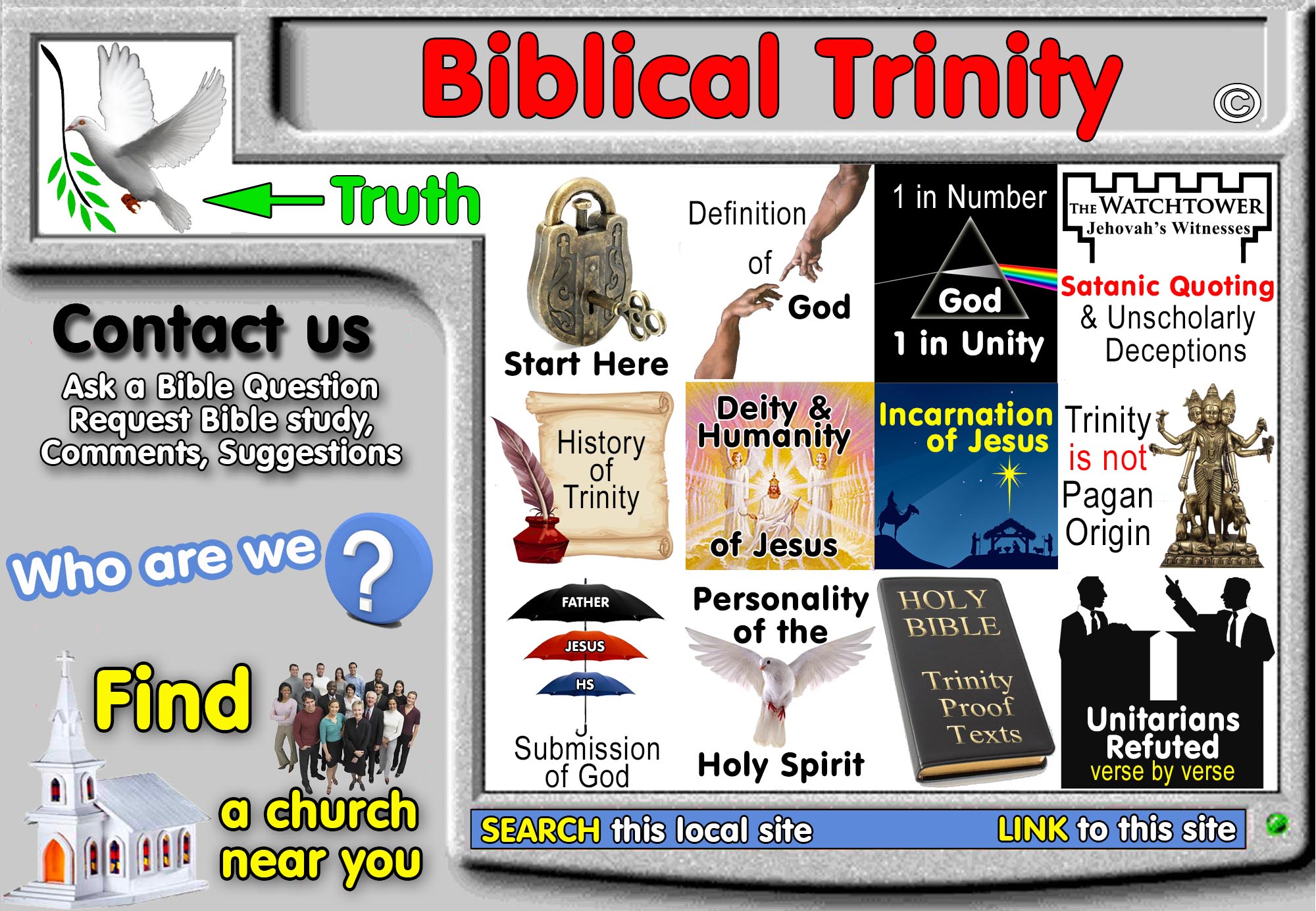
Quotes by Scholars
Anti-Trinitarians will misquote scholars so frequently, that they effectively projecting the false idea that these scholars actually reject that the Bible teaches the personality of the Holy Spirit and the trinity!
Personality of the Holy Spirit:
|
|
Quotes by Scholars Anti-Trinitarians will misquote scholars so frequently, that they effectively projecting the false idea that these scholars actually reject that the Bible teaches the personality of the Holy Spirit and the trinity! |
The personality of the Holy Spirit is a knock out against all anti-Trinitarians and automatically proves that the trinity doctrine of three persons in the one Godhead is true!
Discussion:
Deceptive Quoting only a Partial etymological definition of "spirit":
Quotes by scholars on the personality of the Holy Spirit:
Compiled by Steve Rudd
